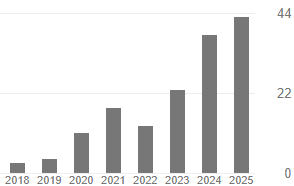Study on Effect of Different Binding Agents on Texture of Frozen Potato Patty by Sensory Evaluation Analysis
Keywords:
potato, texture, quality, frozen, binding agentAbstract
Plant-based frozen products such as potato patty (begedil) are relatively easy to process and become a product of choice for local small and medium entrepreneurs. However, its olfactory attributes are impeded if thawing is required prior to any other consumption. Besides, the moisture is readily separated from the matrix and lead to softening of the texture, drip loss and deterioration of overall quality thus shortening its keeping quality. The aim of this study was to overcome the aforementioned problems by manipulating the binding properties of different types of flour; tapioca, potato, and corn flour coupled with planned processing steps. Three formulations were developed and labeled as F1, F2 and F3 which used tapioca flour, corn flour and potato flour as binding agents respectively where they are singly added into prepared ingredients and then froze at -40C. Samples were tested weekly to observe their binding abilities during frying (1800C) as well as their sensory attributes where 30 trained panelists were instructed to evaluate the texture, meatiness and overall acceptance. This study showed that F1, formulation that used tapioca flour as binding agents was found to be the most outstanding binder with an acceptable eating quality that lasted for 91 days if the kept frozen.
Downloads
Published
How to Cite
Issue
Section
License
Copyright (c) 2019 Politeknik & Kolej Komuniti Journal of Engineering and Technology

This work is licensed under a Creative Commons Attribution-NonCommercial-NoDerivatives 4.0 International License.







